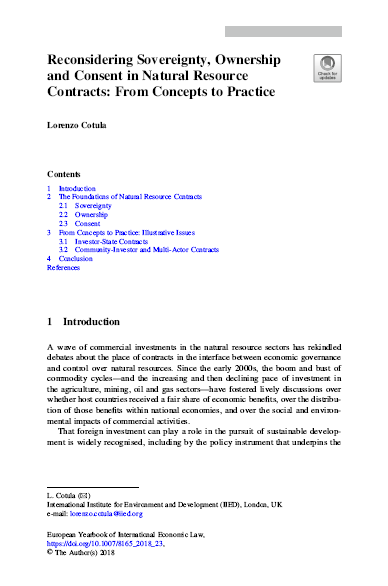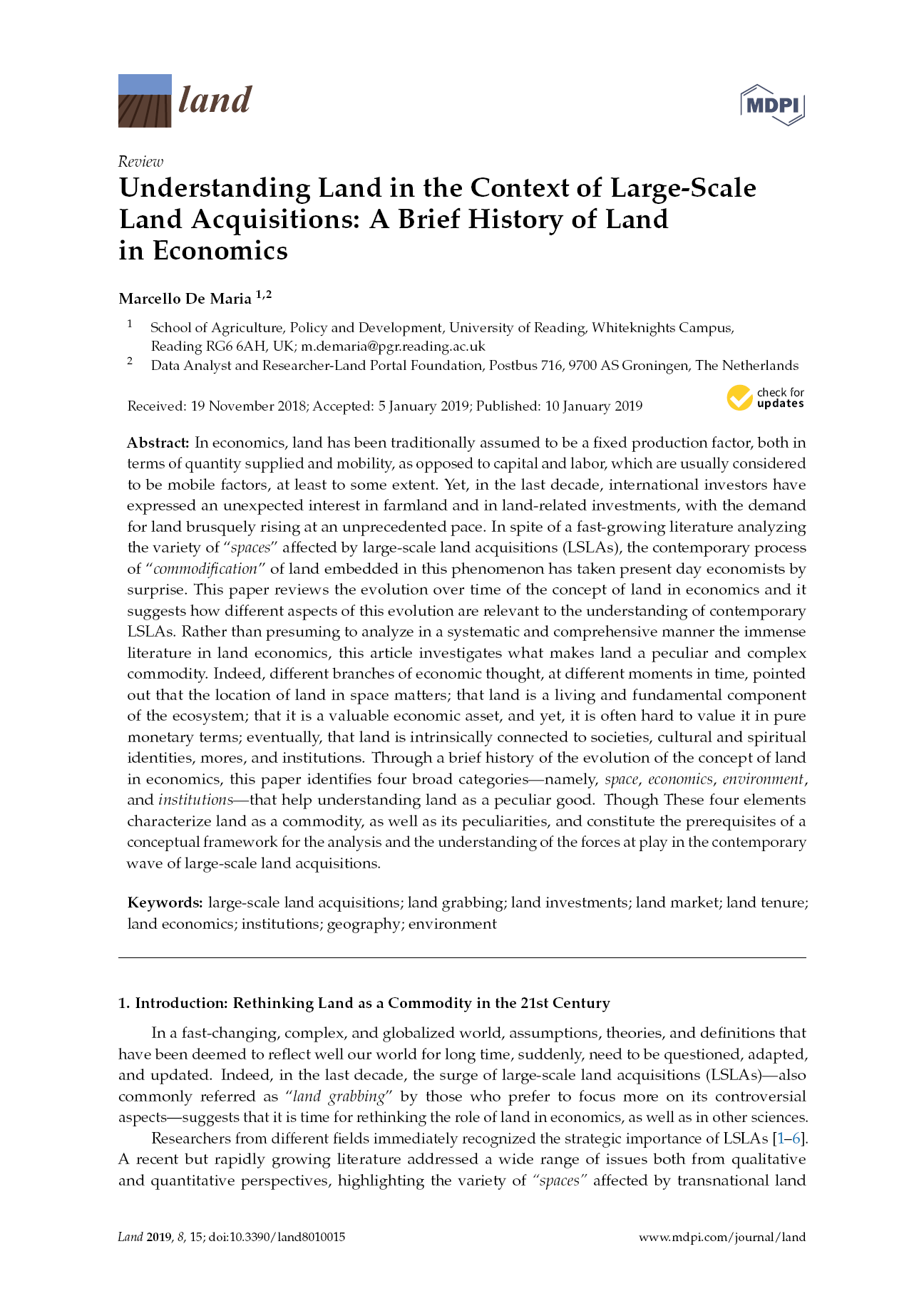Technology to promote transparency around land acquisitions
This short, desk-top study investigates and reviews how technology is being used in developing countries to promote transparency around land acquisitions. This includes reactive solutions to identify and highlight what land acquisitions have taken place and proactive solutions that promote and protect land rights from future land acquisitions.





